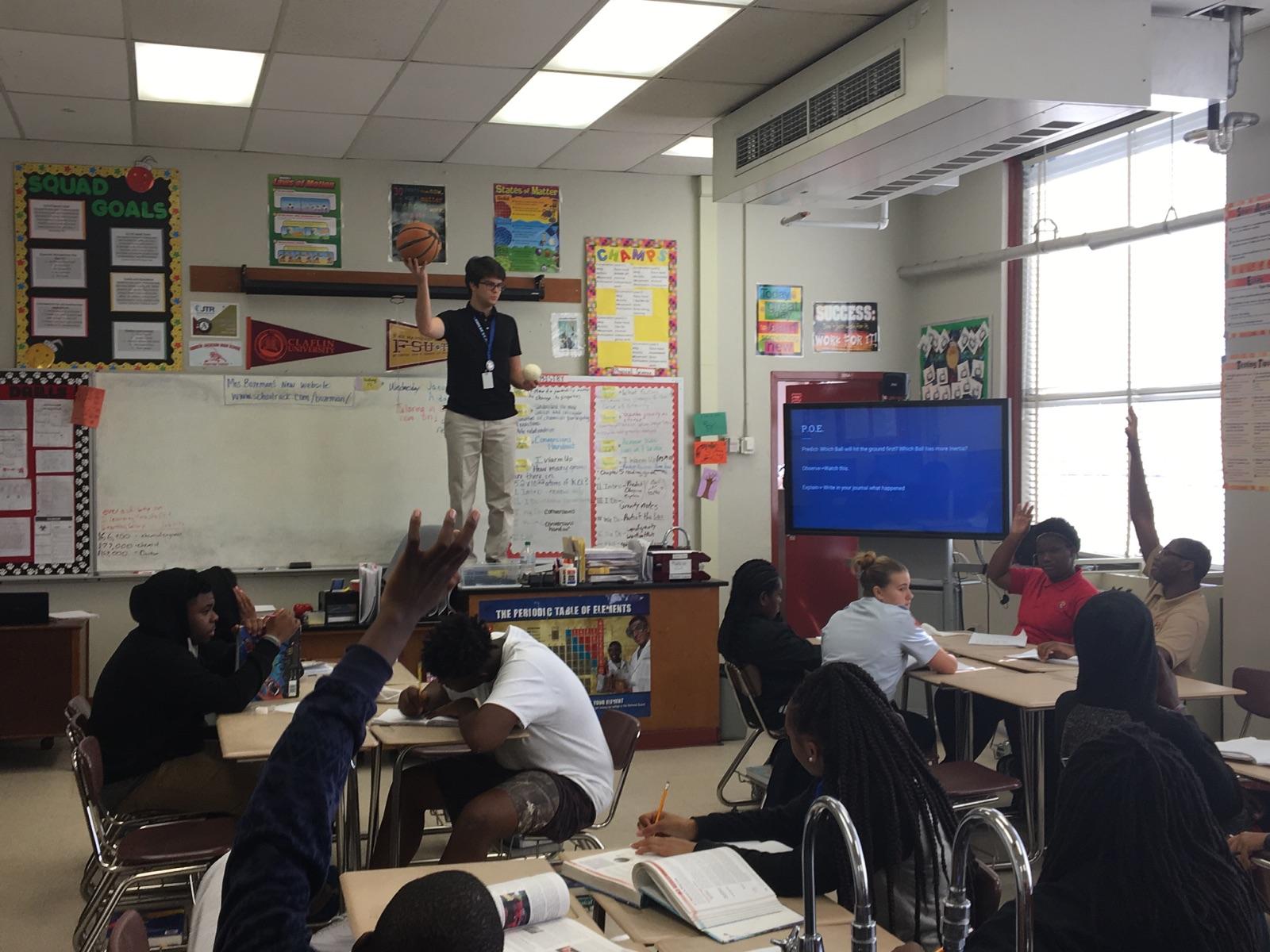By Connor Oswald, 03/2017

Who would you trust more with your life, a doctor who just graduated medical school or a doctor who worked in a hospital for a year, their first year of residency? The answer, obviously, is the latter. Here is a second hypothetical question. Who would you trust more with your child’s education, a 22 year old with a bachelor’s in their content area; or a 23 year old with a bachelor’s in their content area, a year long apprenticeship under a mentor teacher who has consistently been rated as highly effective, and most of a master’s degree in education? Again, the answer is obvious.
When I was considering a career in teaching, I knew that going straight into teaching could be disastrous. I didn’t want to feel limited by getting a bachelor’s degree in education since the amount it would cost me would be more than it could ever repay, since most school districts (at least in Florida) do not reward teachers for having a degree specifically in education. However, they do reward having advanced degrees. The Jacksonville Teacher Residency was my way of attaining an advanced degree. The program commits candidates to teaching for 3 years in high-needs schools in Jacksonville with the promise of a free Master’s degree in Teaching.
The teacher residency Model is very similar to that of a medical residency in that professionals to-be are tasked with more and more responsibilities as the residency continues. The model combines a full year internship with graduate courses in relevant math or science methods and the basics of educational theory, philosophy and psychology. During the first year of the residency, candidate teachers are paired with a teacher who exemplifies the constructs, identified by educational theorists, of what makes a highly effective teacher. They learn from that teacher and experience the classroom in an environment similar to what they would experience in their first year. With the dismal rates of retention and the arguable effectiveness of other teacher preparation programs, the teacher residency model provides an incentive for STEM Majors to pursue advanced degrees and help teach in critical shortage areas.

My personal experience with the Jacksonville Teacher Residency has been more than fulfilling. The Jacksonville Teacher Residency was initiated to put highly trained professionals in the schools that were designated as chronically poor performing facilities, schools where socio-economics influenced children’s futures more than any other factor. Schools where teachers move in and out in the middle of the year, these schools are in desperate need for dedicated individuals. My cohort of resident teachers started in summer 2016, taking graduate level courses in multicultural education and educational psychology, at the end of that semester we met with our mentor teachers and began the school year. I teach physical science and chemistry at Andrew Jackson High School, a school that earned below passing grades for the two out of the past three school years. The residency model is based on the gradual release model, where responsibilities are released to the candidate at a rate proportional to their development and ability within the program and the classroom. I was able to fulfil all of my responsibilities for the master’s program and develop meaningful relationships with my students through tutoring and classroom instruction. After this residency year, after being evaluated for teacher competency by my mentor, my UNF professors and the teacher residency directors, after my master’s classes and after surveying the attitudes of my students about my teaching, I will be more prepared than any first year teacher who hasn’t completed a similar program. In the next few weeks I will get hired by Duval County, and after completing four more graduate courses, next April I will have earned my Master’s Degree in Teaching.

